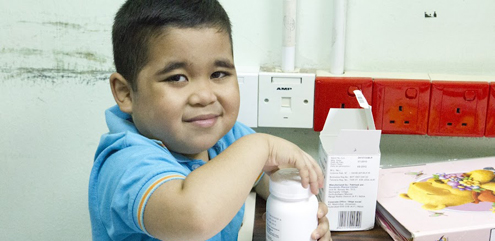Many of the world’s poorest countries are dependent on India’s pharmaceutical industry for affordable medicines that keep millions of HIV-positive people alive and healthy every day. These lives will soon be at risk, however, if intellectual property demands proposed by the European Union in a draft Free Trade Agreement (FTA) with India are accepted.

Primarily as a result of competition from India’s generic pharmaceutical companies, prices for standard antiretroviral drug regimens in low- and middle-income countries have fallen from US$15,000 per person per year in 2001 to less than US$70 in 2012. Today, India supplies more than 80 percent of all adult antiretroviral drugs and more than 90 percent of all pediatric antiretroviral formulations in use in developing countries. An estimated 6.6 million people in low- and middle-income countries are now on antiretroviral therapy, and the annual number of AIDS deaths has fallen by more than 18 percent since the middle of the last decade.
India’s strict patent laws and public health safeguards have ensured its ability to manufacture safe, effective, and affordable medicines. Clauses proposed by the European Union in its draft FTA with India would increase HIV drug prices, thereby diminishing access to these essential medicines. Specific clauses of concern include the followin\:
- Patent term extensions that extend patent life beyond 20 years;
- Data exclusivity provisions that delay the registration of generic medicines and prevent distribution and marketing of affordable versions of pediatric drug formulations and combinations of “off-patent” medicines;
- Investment rules that permit foreign companies to sue the Indian government in private courts to contest domestic health policies, such as reasonable measures to reduce drug prices;
- Border measures that would deny sales of medicines to patients in other countries by authorizing European customs officials and other countries to seize generic medicines in transit;
- Injunctions that undermine the independence of the Indian judiciary to protect patients’ right to health over private industry’s pursuit of profits;
- Other enforcement mechanisms that would place third parties, such as health care providers, at risk of police action if they prescribe or distribute generic medicines.
While the European Union (E.U.) has stated that some measures─such as proposed patent term extensions and data exclusivity provisions─are no longer being proposed, others remain the subject of active negotiation. In protests in front of European country embassies around the world, people living with HIV have been resisting the E.U.’s pressure on India to sign an FTA that would endanger their access to generic lifesaving medicines. amfAR has joined their voices, urging the Indian government to reject provisions that would undermine both Indian industry and the global fight against HIV.